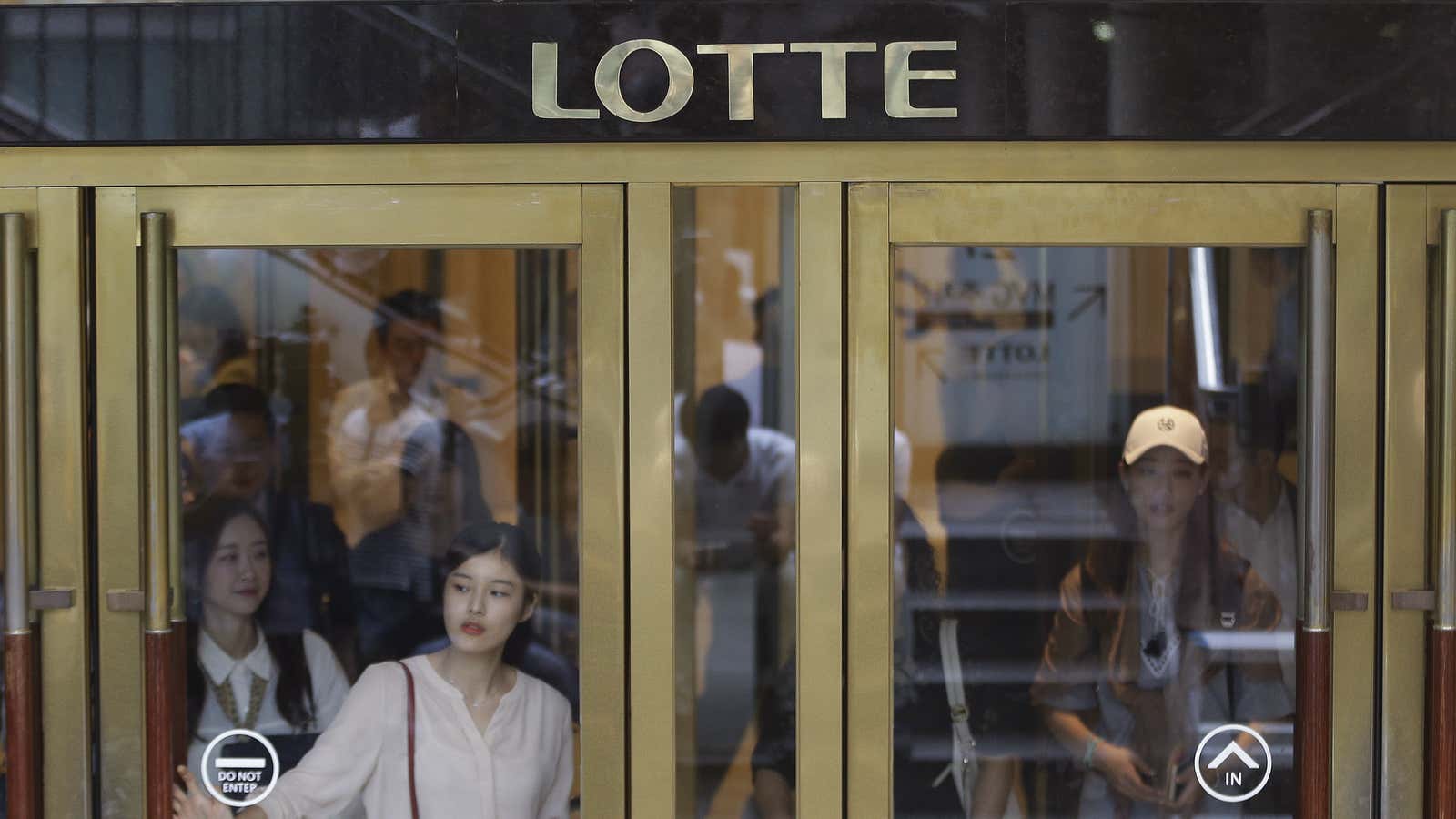China’s has a new target amid its ongoing economic retaliation against South Korea—the country’s fifth-biggest conglomerate.
Yesterday (Feb. 20) state-controlled newswire Xinhua published an editorial warning Lotte Group, one of Korea’s largest holding companies, that it must reject a deal that would allow the US and Korea to build a missile defense system on one of its golf courses, lest it face “consequences.” The piece follows several recent obstacles Lotte has faced in China, and marks the closest Beijing has come to openly declaring a trade war against South Korea.
Last November, Lotte announced it would hand over its Lotte Skyhill Country Club in eastern Korea in a land swap deal facilitated by Korea’s defense ministry. The US in turn received permission to station a Terminal High-Altitude Area Defense (THAAD) battery at the site, which would be pointed at North Korea in hopes of deterring nuclear attacks.
The arrangements have been in the making for months but have yet to be finalized. In the meantime they’ve prompted ongoing retaliatory action from Beijing, which fears they could one day lead to an interlinked set of defense systems used against China.
Last autumn, Korean entertainment companies reported that K-pop stars had been denied permission to perform in China, and films were barred from reaching movie theaters there. Earlier this year, Korean media reported that China had rejected applications for charter flights from Korea to China, and removed subsidies for electric vehicles using Korean-made batteries.
Xinhua’s editorial, however, marks the first time a state mouthpiece has so directly singled out a specific company when discussing THAAD. “Lotte has over 150 branches in China in the retail sector alone,” it notes. A section toward the end seems particularly threatening:
Lotte stands to lose Chinese customers and the Chinese market. That would be a very large slice out of their business pie. The right decision would be for Lotte to defer or reject the deal, thus, forcing the ROK government to review the feasibility of this regionally sensitive project. One misjudged step could have severe consequences.
Editorials in Xinhua don’t constitute official policy, but they often serve as a useful guide for how the Chinese government views current events.
Lotte is one of Korea’s largest conglomerates, with assets in real estate, hotels, cinemas, electronics, and food and beverage. It’s perhaps best known to people living outside of Korea as the maker of Choco Pie cookies and the operator of duty free stores in airports across Asia. About half of Lotte Shopping’s overseas revenue comes from China (pdf, p. 122), and the company has been expanding rapidly there by building malls and movie theaters.
Already, Lotte has faced obstacles in completing some of its recent projects in China. Earlier this month the company told media that the Chinese city of Shenyang had halted construction on a planned $2.9 billion Lotte theme park. A spokesman also confirmed the company would consider shutting down three department store in Beijing, though it claimed the decision was due to weak profits, not political pushback.
To date, both South Korea and Beijing have avoided directly calling the business obstacles a “trade war” stemming from THAAD.
“If China officially takes unfair action against South Korea we would openly move against it, but as long as China says its moves are not related to THAAD and rather, local measures at home, the South Korean government cannot accuse China of retaliating,” said Korean finance minister Yoo Il-ho in response to news of the theme park’s difficulties.
Yet that stance could change if Beijing’s moves grow more frequent. The editorial, by singling out Lotte and THAAD specifically, signals that Korea’s business woes in China are no coincidence.
